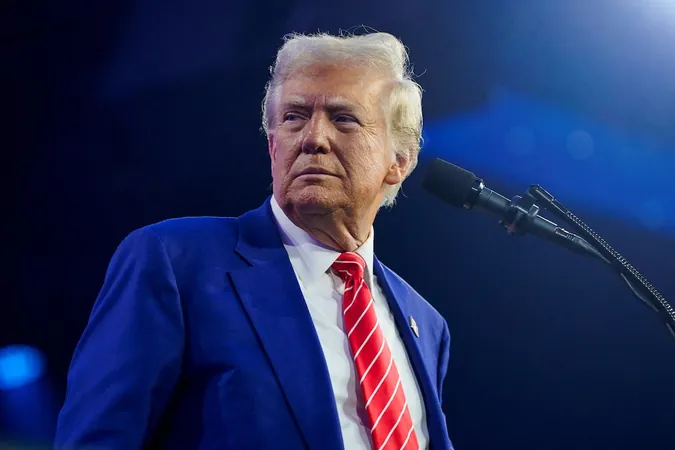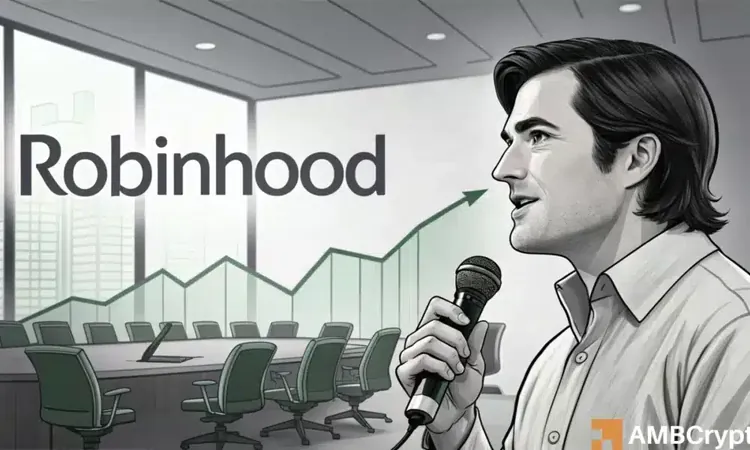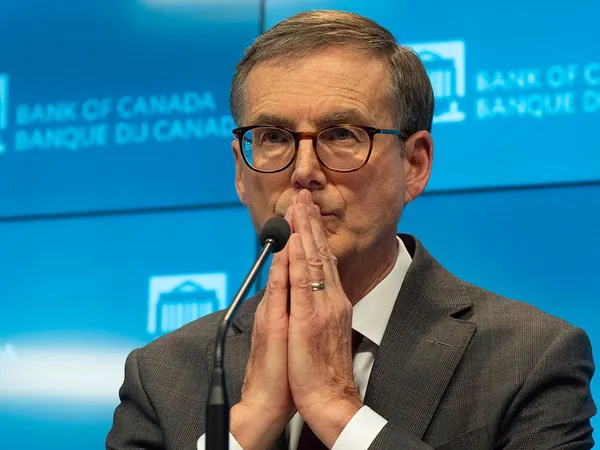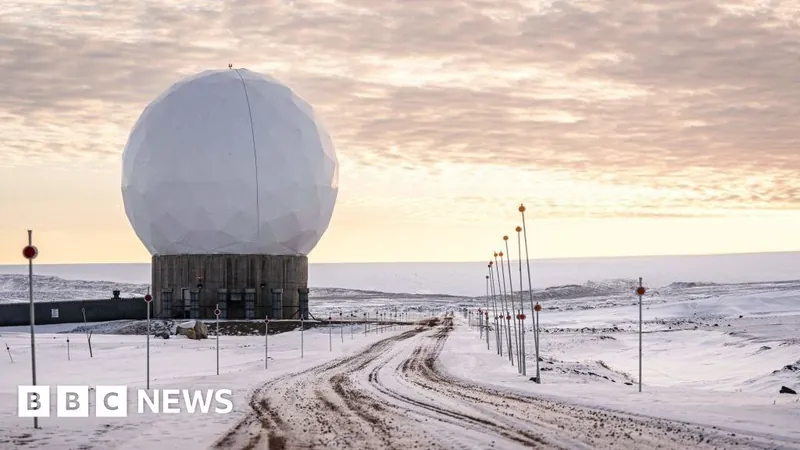
Will Tougher Border Security Save Canada from Trump's Tariff Threat? Insights from John Bolton
2024-12-23
Author: Michael
Will Tougher Border Security Save Canada from Trump's Tariff Threat?
As tensions rise between Canada and the incoming Biden administration, John Bolton, former national security adviser to Donald Trump, warns that increasing border security may not be enough to prevent the imposition of the much-discussed 25% tariffs on Canadian goods.
Bolton expressed concern that Trump’s fixation on tariffs goes beyond mere rhetoric. "Many in the U.S. underestimate Trump, thinking it's just typical bargaining," he stated. However, Bolton is adamant that Trump views aggressive tariff policies as effective economic measures, not just negotiation tools. This comes in the wake of Trump threatening tariffs to combat the flow of migrants and fentanyl from Canada and Mexico.
In a revealing interview, Bolton, who served under Trump during a tumultuous period, addressed Trump's staunch views on tariffs, his fraught relationship with Prime Minister Justin Trudeau, and the potential for the U.S. to withdraw from NATO if allies do not meet military spending commitments.
Following the tariff threats, Canada has been scrambling for a solution. The government has promised enhanced border security measures, including the deployment of helicopters, drones, and additional police presence. Trudeau even made an urgent trip to Trump's Mar-a-Lago estate to address these concerns face-to-face.
However, Bolton remains skeptical about the effectiveness of these measures. He stated, “A clampdown at the border won’t sway Trump. He'll just pivot to another issue.
One critical misunderstanding, according to Bolton, is Trump’s belief regarding who actually bears the cost of tariffs. Trump insists that foreign countries pay the tariffs, whereas in reality, it is American importers who shoulder these financial burdens, ultimately passing costs on to American consumers.
In a concerning anecdote, Trump was noted joking about annexing Canada as the “51st state,” a remark that he has frequently repeated. Furthermore, Trump's recent derision of Canadian Deputy Prime Minister Chrystia Freeland, whom he called "totally toxic," highlights his lack of respect for Canadian leadership. Bolton suggested that Trump might be underestimating Freeland's influence, potentially even bolstering her position as a leading candidate for the Liberal Party's leadership in Canada.
On another front, the issue of NATO spending looms large. Since 2014, allied nations have committed to spending at least 2% of their GDP on defense, a promise Canada has yet to fulfill. With Trudeau's pledge to reach this target by 2032 still lacking a solid plan, the pressure mounts. Bolton warned that Trump, who has frequently criticized NATO and indicated he might encourage Russian aggression toward non-compliant member states, sees non-compliance as a serious breach of trust.
Bolton advises that Canada’s current strategy of appealing to Trump's better nature may not be misplaced, but caution is essential. "You've got to flatter Trump, engage his ego," he said. He emphasized that successful negotiations require understanding Trump’s self-centered approach and framing arguments in a way that shows how tariffs could politically harm him, rather than focusing on the broader impacts on Canada.
In summary, the potential for tariffs and strained relations is far from over. Canada must strategically navigate its dealings with the Trump administration, balancing respect and engagement while preparing for any fallout that might arise. As Bolton astutely points out, "Trump will always prioritize his interests, and understanding that could be key to facing the challenges ahead."









 Brasil (PT)
Brasil (PT)
 Canada (EN)
Canada (EN)
 Chile (ES)
Chile (ES)
 España (ES)
España (ES)
 France (FR)
France (FR)
 Hong Kong (EN)
Hong Kong (EN)
 Italia (IT)
Italia (IT)
 日本 (JA)
日本 (JA)
 Magyarország (HU)
Magyarország (HU)
 Norge (NO)
Norge (NO)
 Polska (PL)
Polska (PL)
 Schweiz (DE)
Schweiz (DE)
 Singapore (EN)
Singapore (EN)
 Sverige (SV)
Sverige (SV)
 Suomi (FI)
Suomi (FI)
 Türkiye (TR)
Türkiye (TR)